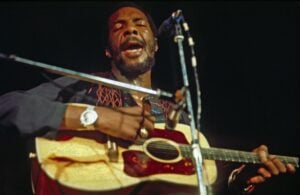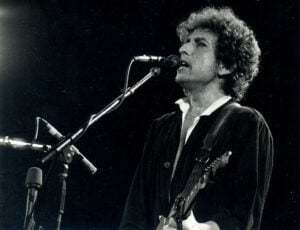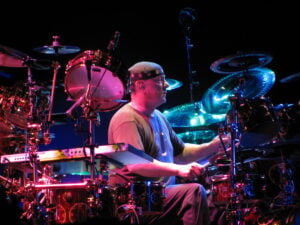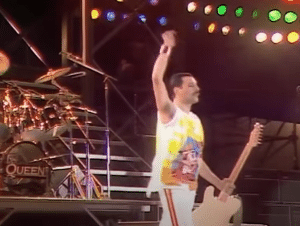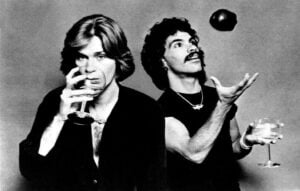10 Classic Rock Songs That Defined the ’70s Rebellion
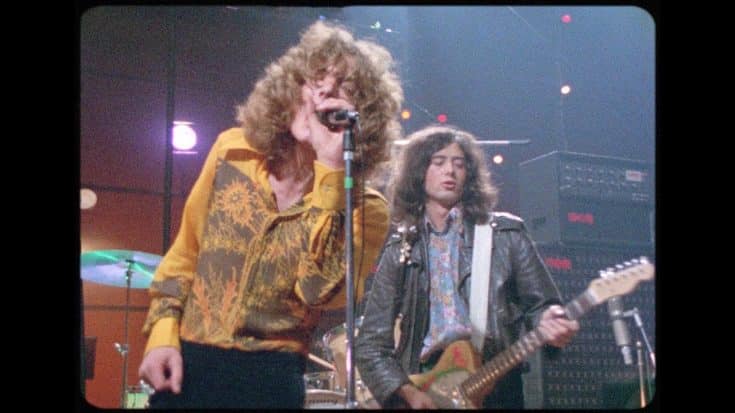
via The Playlist / Youtube
The 1970s were a decade unlike any other. People changed their lives, protested politicians, and changed their way of life. It seemed like the world was continuously changing. People were looking for ways to vent out their fury, hopes, and dreams because of war, societal change, and new ideas. People used music to speak out against authority, break rules, and stand up for something bigger than themselves. It wasn’t simply enjoyable. Rock music was a terrific method to go against the rules, especially. It was loud, unapologetic, and full of energy. It might show how angry, excited, and liberated people were at the time. Not only were the songs of the 1970s popular, but they were also vehicles to convey feelings, rallying cries, and sometimes even acts of revolt.
Every guitar riff might sound like a battle cry, every pounding drumbeat could sound like a heartbeat of defiance, and every voice screaming into a microphone could sound like a generation that won’t be silenced. Some songs were about the political unrest of the moment, while others were about more personal revolutions, like standing up for love, creativity, or just being yourself. They made music for a decade when people disregarded the rules, questioned authority, and yearned for freedom in all its forms.
These songs are still popular today, not just because they are iconic rock songs, but also because they have a message of defiance, courage, and hope that will never go out of style.
1. The Who – “Won’t Get Fooled Again” (1971)
This was rebellion wrapped in a power chord. When The Who released “Won’t Get Fooled Again,” it was more than just a rock song; it was a wake-up call. Pete Townshend wrote the song as a warning to people who blindly believe in political promises or revolutions. The loud blend of guitar, synthesizer, and drums sends a message of doubt and self-awareness. When Roger Daltrey screams at the conclusion, it sounds like a whole generation letting out their anger, being smarter, and being done with being tricked.
2. Led Zeppelin – “Immigrant Song” (1970)
A thunderous war cry inspired by Norse mythology, but its true meaning was independence and domination — a sound that made rebellion mythic.
The initial note of “Immigrant Song” sounds like an invasion of sound. It sounds like an army marching through fire due to John Bonham’s thundering drumming and Jimmy Page’s never-ending guitar riff. Robert Plant’s piercing howl, which is based on Norse myths, makes the song sound like a myth. It seems like it’s about Viking warriors, but really it’s about freedom—the ability to break down walls and make your own way. Not only is “Valhalla, I am coming!” a lyric, but it’s also a call for freedom.
3. Pink Floyd – “Another Brick in the Wall (Part 2)” (1979)
“Another Brick in the Wall (Part 2)” by Pink Floyd gave rebellion a hauntingly lovely tone. The song’s steady tempo and creepy children’s chorus made it unforgettable, but its message was much stronger. “We don’t need no education” wasn’t only about school; it was also about saying no to systems that stifle innovation and limit uniqueness. The song became a worldwide anthem for free thought and was even prohibited in South Africa during apartheid because it inspired protests. It shows that sometimes you don’t need to shout to be rebellious; you just need to tell the truth in a way that makes sense.
4. The Rolling Stones – “Street Fighting Man” (1971)
The Rolling Stones didn’t simply sing about revolt; they put it in a bottle, shook it up, and let it explode. “Street Fighting Man” conveys the stress and excitement of a world that is about to change. Mick Jagger’s rough voice rides over distorted guitars, bringing to mind the turmoil of protests and the anger of young people. The point is that it’s not polished or pretty. The song has a raw sense of urgency, just like the streets it was written about. It’s an insurrection with style and anarchy with rhythm.
5. Fleetwood Mac – “The Chain” (1977)
Written out of heartbreak, infidelity, and internal chaos, “The Chain” became a metaphor for endurance and loyalty. The song is about heartbreak, betrayal, and staying strong. It was written during one of Fleetwood Mac’s most difficult moments. Each person added something special to it, converting their own problems into a strong group voice. The thumping bassline and powerful guitar solo at the conclusion show that you can survive pain. It’s not a protest song, but it is about not giving up. It’s a rebellion against the end of connection, both in love and in life.
6. David Bowie – “Rebel Rebel” (1974)
“You’ve got your mother in a whirl…”
David Bowie didn’t just sing about rebellion — he was it. A glam-rock masterpiece that made individuality a badge of honor. In a time of conformity, he showed the world that being different was the ultimate act of defiance.
Not only did Bowie write the song “Rebel Rebel,” he also lived it. Bowie’s remarkable looks and brazen way of expressing himself went against everything people thought a rock star should be. This glam-rock classic is a love letter to being yourself and having freedom. The song’s cocky lyrics and swaggering riff praise everyone who is brave enough to be different. Bowie made it obvious that being yourself was the most rebellious thing you could do at a time when everyone else was doing the same thing. Every note is full of confidence, charm, and revolt.
7. Creedence Clearwater Revival – “Fortunate Son” (1969 / early ’70s)
Few songs hit harder. This anti-war anthem called out privilege and hypocrisy during Vietnam. “It ain’t me, I ain’t no senator’s son” became a battle cry for the working class — still powerful decades later. John Fogerty’s harsh, scratchy voice pierced through the noise and spoke out against privilege and inequity. The song is about people who talk about being patriotic but never pay the price. It’s about people who were born into comfort while others were sent to battle. It’s very honest, direct, and heartfelt. It’s still one of the most striking protest songs ever composed, the kind that makes people shake their heads and agree.
8. Queen – “We Will Rock You / We Are the Champions” (1977)
These weren’t just songs — they were movements. Together they became the global soundtrack for victory, resilience, and standing tall.
Queen released two of the most unifying rock songs ever, and they came out in quick succession. “We Will Rock You” is all about the beat. It’s foot-stomping, hand-clapping, and very bold. It’s a chant for everybody who has ever been looked down on. Then “We Are the Champions” plays, and Freddie Mercury’s voice rises like a flag after a long fight. These songs changed resistance into empowerment and defiance into celebration. Not only were they hits, but they were also signs of strength.
9. Aerosmith – “Dream On” (1973)
Steven Tyler poured his soul into one of rock’s most emotional anthems. It’s a quiet rebellion — not with fists, but with faith. “Dream until your dreams come true” became a generational motto for persistence.
“Dream On” by Aerosmith is a song about rebellion that makes you think. Steven Tyler uses determination and hope instead of anger. The song’s steady build-up is like the path from failure to success, and his raw voice makes every phrase sound like it’s coming from him. This form of resistance doesn’t break down boundaries; it keeps pushing, softly but steadily. Don’t stop believing, even when things are tough. That’s the basic but eternal lesson. For a lot of people, “Dream On” became a song about never giving up. It showed that opposition doesn’t always have to be loud.
10. Bruce Springsteen – “Born to Run” (1975)
Bruce Springsteen’s masterpiece of escape and defiance. It’s the sound of the open road, the American dream, and the refusal to settle. Every verse is a sprint toward freedom, every chord a heartbeat of hope.
“Born to Run” is full of adrenaline. Springsteen’s most famous song is about the strong desire to go away from small towns, dead-end employment, and people who tell you how to live your life. Each line is like a flash of liberation, and each guitar strum is like a heartbeat racing toward the horizon. It’s not just about getting away; it’s about going after something bigger. The song became a rallying cry for people who dreamed big and refused to give up. It was for people who thought there was always something greater ahead. It’s freedom with a motor and rebellion with optimism.















